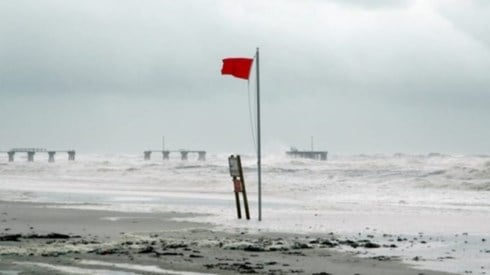Cyber, Business Interruption Top Risks in "Allianz Risk Barometer 2023"

January 18, 2023

Cyber incidents and business interruption rank at the top of businesses' top risk concerns in the Allianz Risk Barometer 2023 from insurer Allianz Global Corporate & Specialty (AGCS).
The top two risks in this year's Allianz Risk Barometer (January 17, 2023) held the same spots in the 2022 report.
Macroeconomic developments such as inflation, financial market volatility, and the threat of recession jumped up the list from 10 in 2022 to 3 this year, while an energy crisis joins the top 10 risks for the first time in this year’s report, entering at number 4.
Rounding out the top 10 risks in this year’s Risk Barometer, in order, are changes in legislation and regulation, natural catastrophes, climate change, shortage of skilled workforce, fire or explosion, and political risks and violence.
The Allianz Risk Barometer is an annual business risk ranking compiled by AGCS along with other Allianz entities. It incorporates the views of 2,712 risk management experts in 94 countries and territories including CEOs, risk managers, brokers, and insurance experts. This is the 12th time Allianz has published the risk barometer.
"For the second year in a row the Allianz Risk Barometer shows that companies are most concerned about mounting cyber risks and business interruption," AGCS CEO Joachim Mueller said in a statement. "At the same time, they see inflation, an impending recession, and the energy crisis as immediate threats to their business. Companies—in Europe and in the [United States] in particular—worry about the current 'permacrisis' resulting from the consequences of the pandemic and the economic and political impact from ongoing war in Ukraine. It's a stress test for every company's resilience."
AGCS found that the top four risks in this year's Risk Barometer are largely consistent across all company sizes globally, as well as across core European economies and the United States, with the exception of the energy crisis in the United States.
In the Asia Pacific region and African companies there is some deviation among the top risks, AGCS says, reflecting the varying impact of the Russia-Ukraine war and its economic and political repercussions.
In the United States, the top three risks, in order, are business interruption, cyber incidents, and macroeconomic developments. Companies in Canada rank cyber first, the shortage of a skilled workforce second, and climate change third.
In the United Kingdom, cyber takes the top spot with business interruption second and macroeconomic developments third. Businesses in Germany rank business interruption first, cyber second, and an energy crisis third.
The AGCS report notes that this is the first time cyber incidents such as information technology outages, ransomware attacks, or data breaches held the Risk Barometer top spot for 2 successive years.
Data breaches are the cyber exposure of most concern to companies, AGCS says, with reports showing the average cost of such incidents reached an all-time high of $4.35 million in 2022, and is expected to top $5 million this year. Ransomware attacks and the failure of digital supply chains or cloud service platforms also rank high among businesses' cyber worries.
"Severe business interruption can result from a wide range of cyber-related triggers, including malicious attacks by criminals or nation state-backed hackers, human error, or technical glitches," the 2023 Risk Barometer report says. According to the report, Allianz claims analysis showed business interruption to be the greatest loss driver for cyber-insurance claims.
In addition, hackers are increasingly targeting both digital and physical supply chains, the AGCS report says, giving cyber criminals opportunities to simultaneously attack multiple companies and gain additional leverage for extortion. Large companies' greater investments in cyber security have resulted in cyber criminals increasingly targeting small and midsized businesses, the report says.
Regarding macroeconomic developments, the Risk Barometer report notes that beyond the human tragedy of the COVID-19 pandemic and Russia's attack of Ukraine, the events have caused economic and financial market volatility likely to continue in 2023.
"High inflation, and efforts by central banks to tame it, together with the energy crisis, have resulted in the cost of living soaring and the threat of recession," the report says. "All three major economic areas—the [United States], China, and Europe—are in crisis at the same time, albeit for different reasons."
Noting the first-time appearance of the energy crisis in the Allianz Risk Barometer, AGCS says rising energy costs have forced some energy-intensive industries to use energy more efficiently, move production to alternative locations, or even consider temporary business shutdowns.
"The resulting shortages threaten to cause supply disruption across a number of critical industries in Europe, including food, agriculture, chemicals, pharmaceuticals, construction, and manufacturing," the report says. "The results show that companies in Europe, which has been heavily dependent on Russian gas, are much more concerned about the impact of the crisis than elsewhere in the world, given its resulting shock to revenues and profitability."
While saying that the number five risk in the 2023 Allianz Risk Barometer—changes in legislation and regulation—is a "perennial top five peril" in the survey, the fall of natural catastrophes and climate change to number 6 and 7, respectively, from 3 and 6 in 2022 is driven in part by a perception that there are more pressing developments on the risk landscape, the report says.
However, there's no room for complacency with regard to natural catastrophe and climate change risks, this year's Allianz Risk Barometer report says. "Hurricane Ian in the [United States], widespread flooding in Southeast Asia and Australia, winter storms in Europe and the [United States], severe heatwaves and droughts around the world, and even record-breaking hailstorms in France all contributed to another $100 billion-plus year of insured losses in 2022," the report says.
The Allianz Risk Barometer report says transparency and quality data are essential to developing solutions for business interruption, supply chain disruptions, and many of the other risks identified in this year's report.
"Access to good quality structured data will help the insurance industry to be more creative and develop new solutions and products, aligning these with the pain points of customers, which continually change over time," the report says.
January 18, 2023





